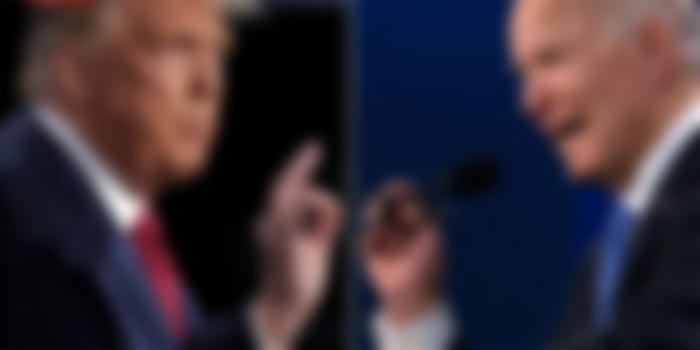America decides who will sit in the coming years on the chair of the most developed country in the world Donald Trump or Joe Bilden the question is now?

About 225 million Americans today elect the 46th president of the United States. Although today it is considered the "cradle of democracy", the United States actually has one of the most specific presidential electoral systems in the world, which, due to its complexity, the citizens of this country know little about and which, at times, certainly does not seem democratic!
This way of electing the president was defined by the 12th amendment to the US Constitution in 1804. Thus, the unchangeable has been valid for more than 2 centuries, although in the meantime the political circumstances, and America itself, have changed a lot.
Little is said about the electoral system that rules in this country even at the time of the election, so there are many misconceptions.
Here are some of them:
Misconception number 1:There are only two presidential candidates?
Elections in America actually begin as early as the beginning of an election year. In the first months, the two largest parties - the Republicans and the Democrats, choose their candidate. Across the state, anyone with a desire to run can do so, and then at the federal state level, internal party elections are held. Voting takes place at party premises and these elections can be closed (only registered party sympathizers can vote) but also open (when anyone can vote, including a sympathizer or even a member of another party)
Most candidates drop out like this or withdraw themselves, so in practice the party's support is given only to an experienced or influential individual who has the resources to mobilize the most support. At the final convention, both Republicans and Democrats confirm their only candidate when they will be supported by their voters in all federal states (regardless of the fact that they may have initially voted for someone else).
However, even then, there are not only two candidates in the elections, because there is always an independent candidate, although not much attention is paid to him in public.
Misconception number 2: The citizens of America elect a president?
This is only partially true! Namely, the citizens of America do not elect directly in the presidential election, but actually vote for their representatives, who will then vote for the President of the United States on their behalf. So when an American votes, he is actually telling the representatives of his federal state when they should vote.
These representatives are called "electors" and are appointed by political parties separately for each federal state. As the majority electoral system is in force, regardless of the majority with which one of the candidates won in a federal state (the difference can theoretically be only one vote), all the votes of the electors from that state go to him.
This rule does not apply to only two American states - Maine and Nebraska, where the number of voters is divided proportionally.
Most states have been "republican" or "democratic" for centuries, so the parties concentrate their activities mostly on the so-called "Indeterminacy, shaky" states - Ohio, Florida, Pennsylvania and Virginia.
Myth number 3: Every vote is worth the same?
Not every state has the same number of voters! Their number is determined based on the number of inhabitants. There are at least three of them, and their number is recalculated with each census every 10 years. The total number of voters has remained unchanged since the 1964 election and stands at 538. To win, a candidate must win 270 votes.
However, this system is not perfect, so states with a small population still get more voters than they deserve - the vote of one citizen of Vermont is worth as much as the votes of three citizens of Texas, while one vote from Wyoming is worth as many as four votes in California.
Myth number 4: All Americans have the right to vote?
It is estimated that about 11 million Americans live on the so-called US island territories - Puerto Rico, US Virgin Islands, Midway ve Residents of these countries are considered US citizens, but do not pay federal taxes, do not have representatives in Congress, and therefore cannot vote for the US president.
This is quite ironic, because the population of the Territory is higher than in the six sparsely populated federal states. Voting of astronauts from space who send their votes by mail, not to mention.
Misconception number 5: Electors must respect the will of the voters?

Although the citizens delegated them, the votes do not oblige the voters to respect their will. They will generally respect that, but there were also cases when the electorate voted against the instructions of their party for an independent candidate or even for an opponent.
A total of 158 such cases have been recorded in history, but they have never changed the outcome of the election. However, in order to prevent their representatives from "changing their minds" in this way in the last 10 years, some countries have introduced fines ranging from fines to imprisonment.
Misconception number 6: The winner of the election is known on election day?
Precisely due to the fact that voters do not have to vote for the one for whom they were "strongly suggested" by voters from their country, the winner of the election is not actually 100 percent known on election day.
The electors themselves meet in Washington only six weeks after the election, in December, in a body called the Electoral College, and they are the ones who officially elect the president of the United States.


Everyone is waiting for the outcome of the election.